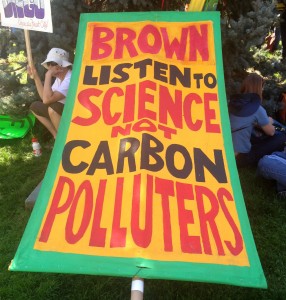
By Andrew Grinberg, California Oil and Gas Program Manager - Follow Andrew on Twitter (@AndrewBGrinberg)
This post is part of Clean Water Action's ongoing series this month on California Oil and Gas policy. The entire “July: Oil and Gas Month” series can be found here.
Another day, another major oil and gas development. In just 2 weeks we’ve seen the implementation of new fracking regulations, certification of a statewide environmental impact report on fracking, the release of Kern County’s environmental impact report for all oil production activities and the adoption of groundwater monitoring rules.
Last week was a major turning point in the fight to protect California from fracking and other dangerous oil production activities. The state-sponsored scientific study dropped on Thursday. And, while it wasn't a knockout punch to Big Oil, it was a scientific body blow that cuts through the misinformation and turns back the spin.
Unlike some recent coverage on fracking related studies the stories in the major papers reflected the science. Headlines like “Water and wildlife may be at risk from fracking's toxic chemicals, panel finds” and “Most fracking waste dumped in unlined pits in CA, study finds” offered fact-based findings and highlighted a range of recommendations contained in the study.
At the core of the study are two findings that have always guided our work on California oil and gas issues.
The referenced media source is missing and needs to be re-embedded.
Photo by Andrew Grinberg- Fracking presents numerous risks to water, health and the environment and current policies do not adequately address them.
- Major reforms are needed to address the many threats from oil production in California, beyond just fracking.
Related Posts
Stay Informed
Get the latest updates and actions:
Thanks for signing up!
There was a problem processing your signup. Please try again.



